St Albans Methodist, a cherished Grade II listed parish church in Stroud, sought to enhance its comfort and energy efficiency without compromising its architectural integrity. Serving two parish congregations within one historic space.
As part of their recent upgrade, the church installed two Shadow Chandeliers and two Shadow Crystal Infrared Glass Panel Heaters designed to enhance comfort, energy efficiency and usability for the congregation and visitors alike. These installations provide discreet warmth, soft illumination and easy control, aligning heritage preservation with modern sustainability.
Like many traditional buildings, St Albans Church faced challenges with its previous gas heating system, which was inefficient, costly and inconsistent in maintaining warmth across different zones, particularly in the pulpit and lecture areas.
Church leaders sought a solution that would:
The project introduced the Shadow Crystal Infrared Glass Panel Heaters, which were installed at the pulpit and chancel, providing targeted, zero-light warmth while blending seamlessly with the building's interior.
Meanwhile, the Shadow Chandeliers enhanced both the aesthetic and practical heating, bringing a warm, ambient glow that complements the church's traditional architecture. Both congregations were highly positive. The project aligns with the church's environmental goals while enhancing the worship experience.
To meet the church's heating needs, Shadow Industrial installed two Shadow Chandelier heaters and two Shadow Crystal Infrared Glass Panel Heaters, which were carefully positioned to provide optimal warmth without compromising the church's architectural integrity.
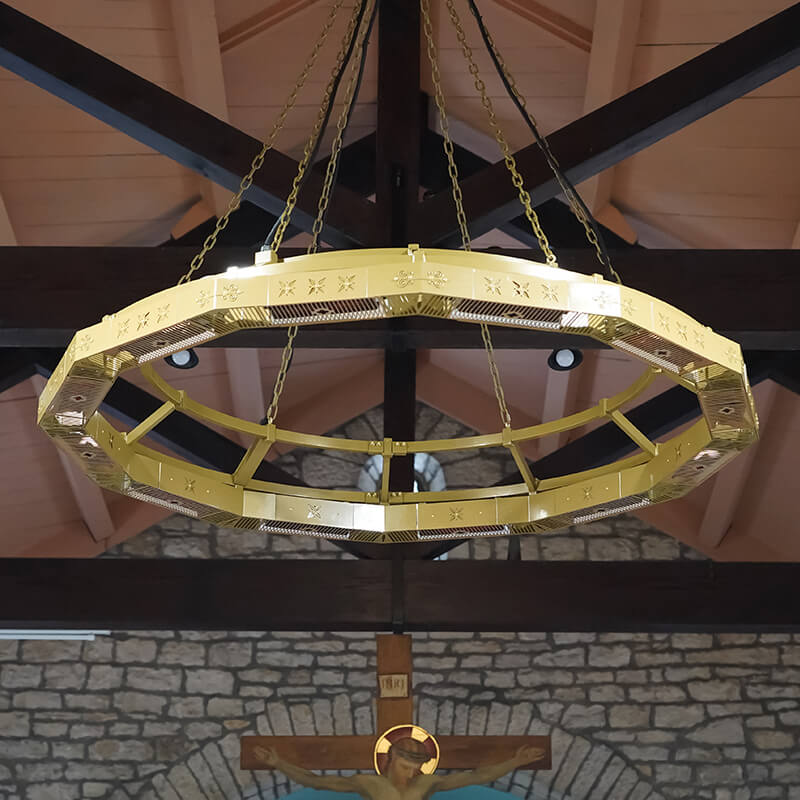
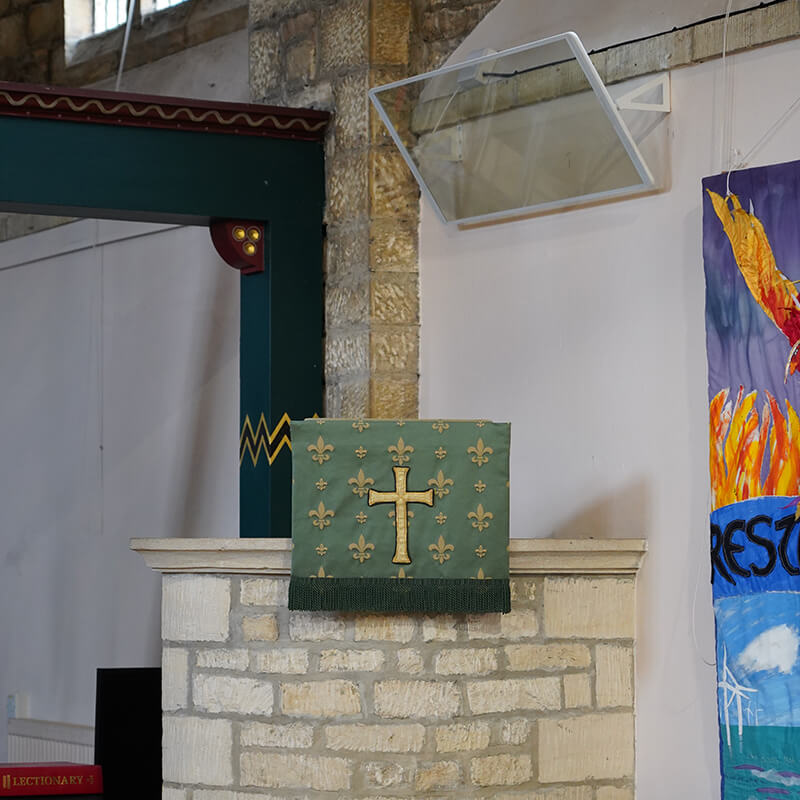
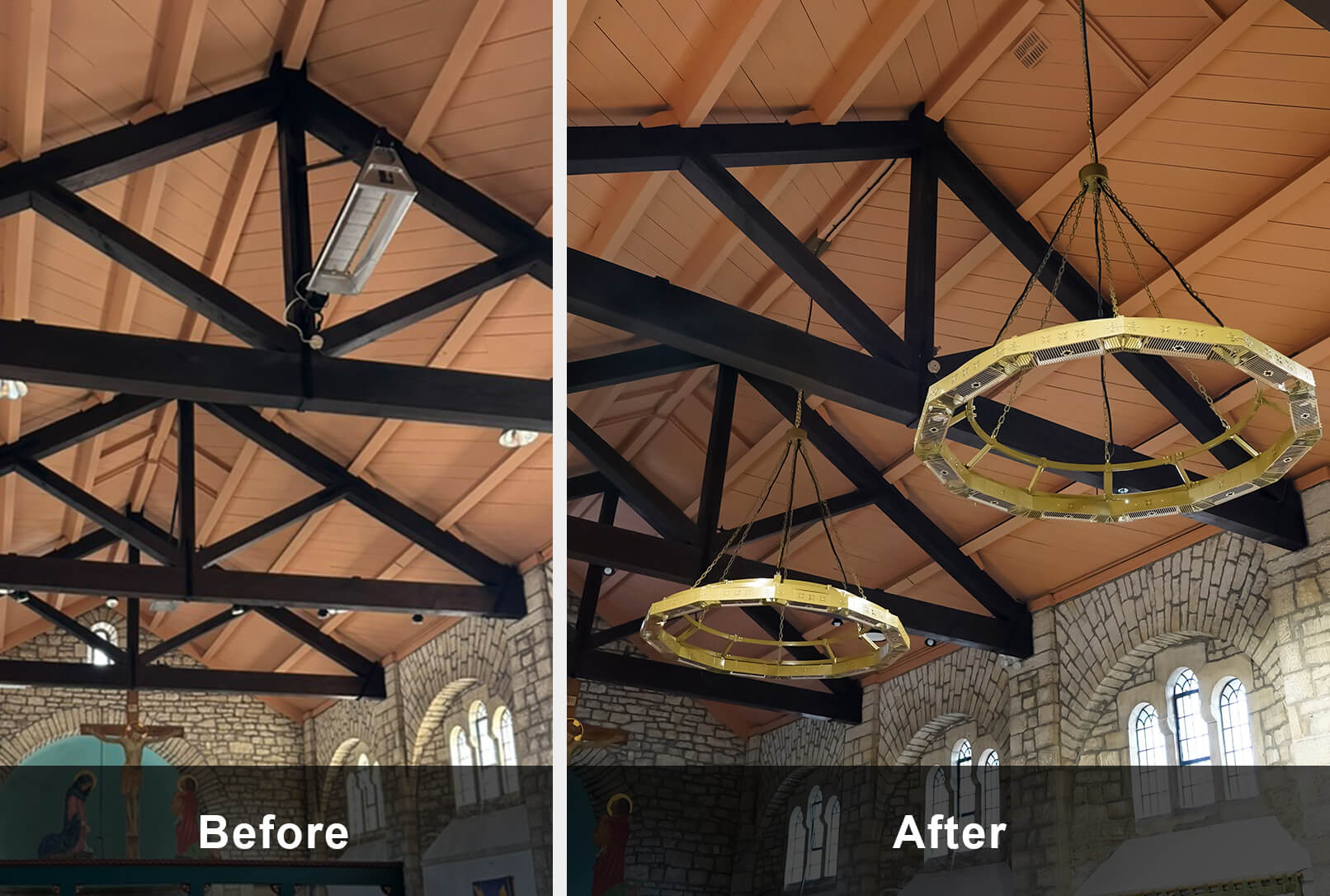
The St Albans Church project demonstrates how modern infrared heating solutions can be sensitively integrated into a heritage setting. By combining the efficiency of our Shadow Crystal Infrared Glass Panel Heaters with the elegance of our Shadow Chandeliers, the church now enjoys a warm, inviting and energy-efficient environment, preserving its historic beauty while embracing sustainable innovation.
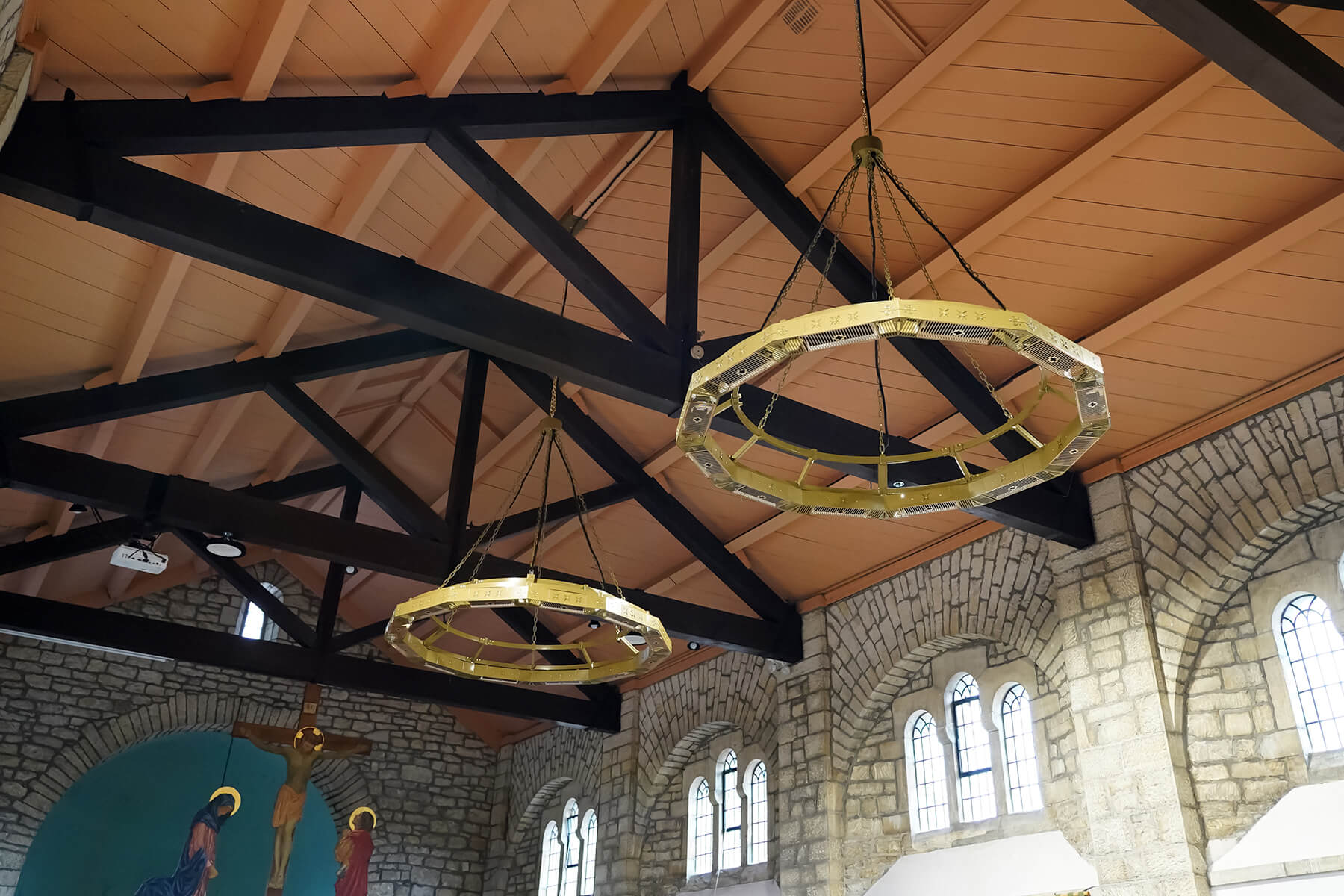
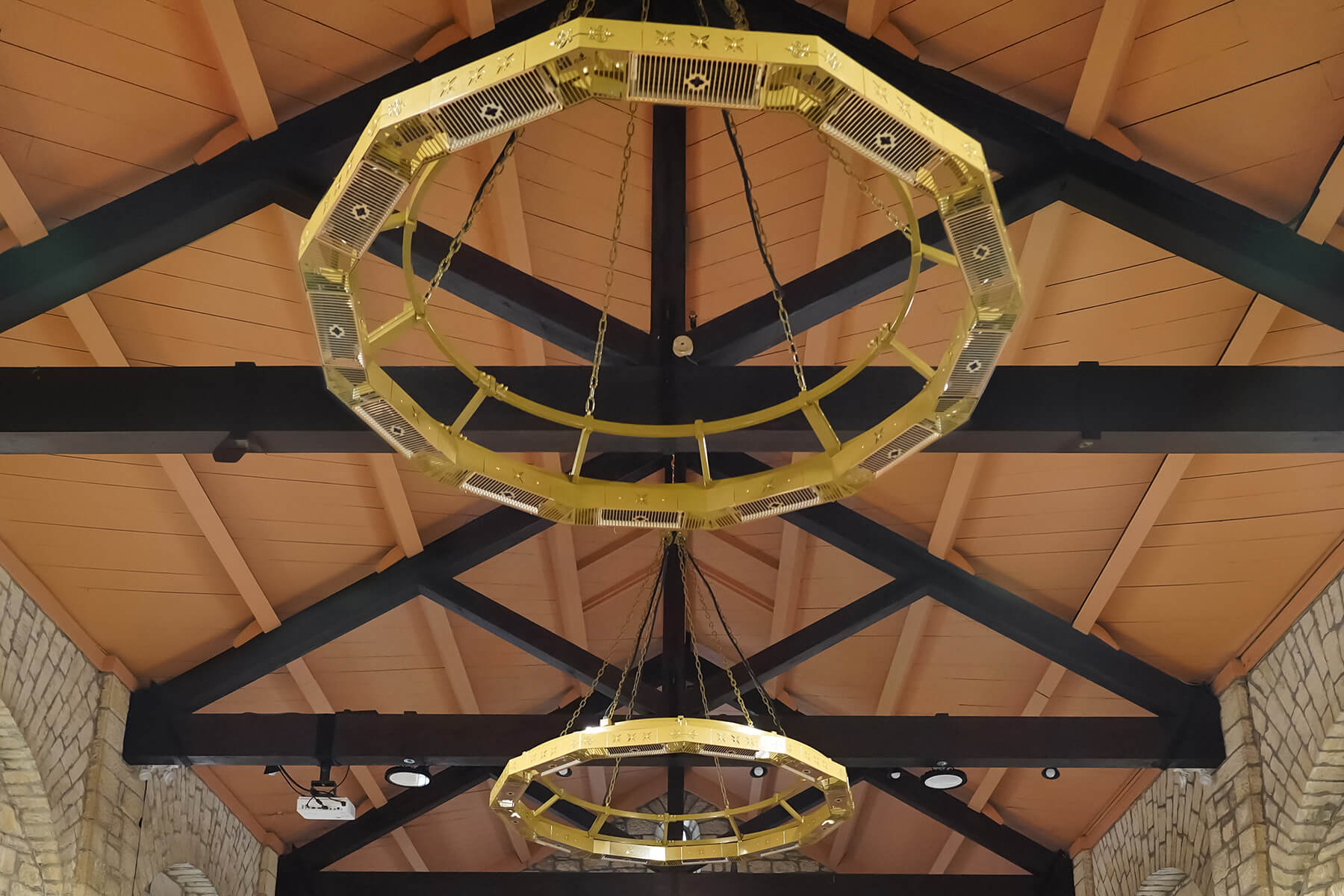
Most companies today want to reduce or eliminate their net contribution to greenhouse gasses - but it can be hard to know where to begin.
What will have the most impact? One focus area for many organisations is their energy use and heating.
Gas-based systems are falling out of favour as they generate significant carbon emissions. Instead, many are turning to electric infrared heating as this offers the potential for zero emissions at the point of use if renewable energy is used to power them.
Infrared is a popular choice as it offers very high-efficiency ratings - up to 98% of energy is converted into heat. Additionally, heat isn't wasted as it can be focused on the areas that need it the most.